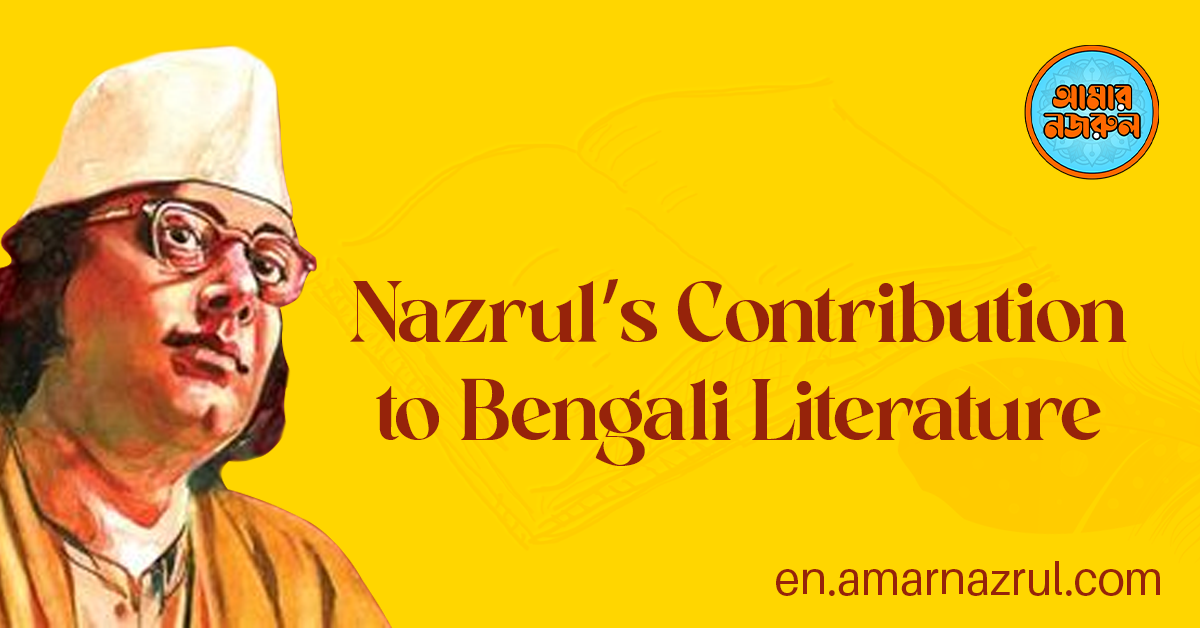Kazi Nazrul Islam, frequently dubbed the “Rebel Poet,” stands as an iconic figure in the history of Bengali literature. Born in 1899, Nazrul’s poetry and songs echoed the cries of rebellion against orthodoxy and oppression, making him a unique voice amidst his contemporaries. His work, while profoundly rooted in the socio-political milieu of his time, transcends temporal boundaries, making it as relevant today as it was during the tumultuous days of the British Raj in India.
Early Life and Background
Born in a small town in Bengal, Kazi Nazrul Islam’s childhood was marked by poverty. However, the adversities of his early life couldn’t suppress his indomitable spirit. Despite his lack of formal education, Nazrul was exposed to a myriad of cultural influences. From the fervor of Islamic devotional songs to the mellifluous tunes of Bengali folk music, the richness of the cultural tapestry around him shaped his literary sensibilities.
Nazrul’s Revolutionary Stance
Nazrul’s poetry and prose often carried an incendiary tone, challenging the British Raj and speaking against religious bigotry and societal dogma. His writings were a call to action. One of his most renowned poems, “Bidrohi” (The Rebel), vividly paints the spirit of revolt. The poem is not just a protest against foreign rule but a larger cry against all forms of oppression.
Contribution to Bengali Literature
Nazrul’s contribution to Bengali literature can be understood through various facets:
- Poetry and Songs: Nazrul’s poetic works resonate with a distinctive rhythm and energy. His songs, known as “Nazrul Geeti,” are a unique blend of diverse musical traditions ranging from classical ragas to folk tunes. They address themes of love, devotion, and rebellion, making them timeless classics in the realm of Bengali music.
- Plays and Prose: While Nazrul’s reputation primarily rests on his poetry and songs, he was also a playwright and prose writer. His plays, imbued with nationalistic fervor, were instrumental in galvanizing public opinion against the British Raj.
- Journalism: Nazrul was not just a poet but also a journalist who used the medium to disseminate his revolutionary ideas. His editorials were as fiery as his poems, often leading to his works being banned and him being imprisoned.
- Religious Inclusivity: A hallmark of Nazrul’s work was his call for communal harmony. Being a Muslim, he composed not only Islamic devotional songs but also Shyama Sangeet, which are songs in praise of the Hindu goddess Kali. This pluralistic approach made him a symbol of unity in a land often riven by religious strife.
- Gender Equality: Nazrul was a staunch advocate for women’s rights. His works often celebrated the strength and spirit of women, portraying them as equals, if not superior, to men. At a time when traditional mindsets prevailed, Nazrul’s progressive stance was revolutionary.
Legacy
Kazi Nazrul Islam’s demise in 1976 was not the end of his legacy but rather a transition. His work continues to inspire generations, advocating for justice, equality, and human rights. In a post-independence Bangladesh, Nazrul was honored with the title of “national poet,” but his influence is not limited to national boundaries. His songs and poems are celebrated across Bengal and have found resonance with anyone who values freedom, justice, and equality.
Conclusion
Kazi Nazrul Islam was not just a poet; he was a movement, a force of nature that sought to upend the prevailing order. His writings, though deeply rooted in the socio-political context of colonial Bengal, carry a universal appeal. They challenge us to question, to rebel, and to seek a world free from oppression and prejudice. In the annals of Bengali literature, Nazrul occupies a place of pride, not just for the beauty and rhythm of his words but for the timeless values they espouse.
